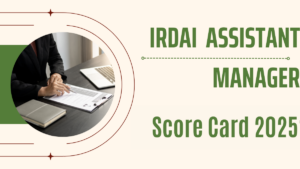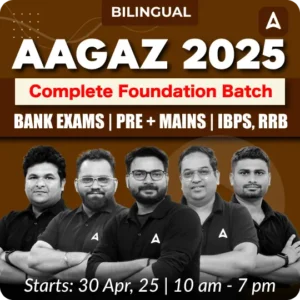Q1. Which of the following is not required to be included in the memorandum of association as specified in the Companies Act, 2013?0
(a) The name of the company and the state in which it is situated.
(b) The objects for which the company is proposed to be incorporated.
(c) The rules, regulations and bye-laws for the internal management of the company.
(d) The state of registered company
(e) None of these
Q2. Section 80 GGC of Income tax is:
(a) Deduction for contributions made to political parties by any individual
(b) Deduction for contributions made to political parties by any company.
(c) Deduction for certain donations to scientific research.
(d) Deduction for rented property.
(e) None of these
Q3. Which of the following are NOT related to income tax?
(a) Leave Travel Allowance (LTA)
(b) Dearness Allowance (DA)
(c) Tax Deduction and collection Account Number (TAN)
(d) Taxpayer Identification Number (TIN)
(e) None of these
Q4. Booting in operating system refers to?
(a) Restarting computer
(b) Install the program
(c) Scaning computer
(d) To turn off computer
(e) Shutdown computer
Q5. To access the services of the operating system, the interface is provided by the_____
(a) System calls
(b) API
(c) Library
(d) Assembly instructions
(e) WPN
Q6. Any person in charge of paying salaries must deduct tax at source at the ________ rate of income tax, calculated on the basis of _________ for the relevant fiscal year.
(a) Maximum marginal rate, rates in force.
(b) Average rates, rates in force.
(c) Average rate, 20%
(d) Maximum marginal rate, 20%
(e) None of these
Q7. An auditor has the right to attend any general meeting under Section 146 of the Companies Act of 2013.
(a) By himself or through the authorised representation who is not qualified to be an auditor.
(b) By himself only
(c) Auditor has no duty to attend any general meeting
(d) By himself or through this authorised representation who is qualified to be an auditor.
(e) None of these
Q8. Which is NOT an example of “Promissory Note”?
(a) “I acknowledge myself to be indebted to B in Rs. 1000, to be paid on demand, or value received”.
(b) Mr. B I.O.U Rs,1000
(c) “I promise to pay B or order Rs.500”.
(d) All the above
(e) None of the above.
Q9. An auditor has the right to attend any general meeting under Section 146 of the Companies Act 2013:
(a) By himself or through an authorised representative who is ineligible to be an auditor
(b) Solely by himself
(c) The auditor is not required to attend any general meetings.
(d) By himself or through a qualified auditor’s authorised representative
(e) None of these
Q10.The percentage Balance Sheet is known as _____________.
(a) Trading Account
(b) Profit and Loss Statement
(c) Common Size Statements
(d) Comparative Balance Sheet
(e) all of these
Solutions
S1. Ans(c)
Sol. The Memorandum of Association serves as the company’s charter and defines the scope of its activities. MOA defines the company’s relationship with the rights of the company’s members and also establishes the company’s relationship with the members.
S2. Ans(a)
Sol. The section 80GGC of the Income Tax Act allows the deductions from the total income of an individual taxpayer for his/her contributions made towards electoral trust or political party.
S3. Ans(d)
Sol. Taxpayer Identification Number (TIN) is a number assigned to individuals and organisations in order to track their tax obligations and payments to the Internal Revenue Service (IRS).
S4.Ans (a)
Sol. Booting is the process which is initiated once the computer system starts and executes small set of instructions present in the ROM which will setup system hardware by testing them and load the operating system so that computer system can carry out further tasks.
S5.Ans (a)
Sol. A system call is a way for programs to interact with the operating system. A computer program makes a system call when it makes a request to the operating system’s kernel. System call provides the services of the operating system to the user programs via Application Program Interface(API).
S6. Ans(b)
Sol. Any person in charge of paying salaries must deduct tax at source at the average rates of income tax, calculated on the basis of rates in force for the relevant fiscal year.
S7. Ans(d)
Sol. The correct answer is by himself or through this authorised representation who is qualified to be an auditor. According to Section 146 of the companies act 2013, an auditor has a right to attend any general meeting by himself or through this authorised representation who is qualified to be an auditor.
S8. Ans(b)
Sol. A Promissory Note is a legally binding promise made by a borrower to repay a loan under certain terms and conditions. Unlike an IOU, which simply acknowledges a debt amount, a Promissory Note details the consequences of failing to repay a loan.
S9. Ans(d)
Sol. The correct answer is by himself or through a qualified auditor’s authorised representative.
• Auditor: An auditor is a qualified individual who verifies and reviews a company’s financial records and financial statements to ensure that they are prepared in accordance with the standards. He also examines whether any tampering or manipulation of financial data has occurred in order to conceal any fraud or malpractice within the company.
S10.Ans (c)
Sol. The general items in the profit and loss accounts are expressed as percentage analytic values in the balance sheet which is known as Common Size Statement.] A common size balance sheet shows the numeric value as well as the relative percentage for total assets, total liabilities, and equity accounts. Internal and external analysts use common size balance sheets, but they are not a reporting requirement of generally accepted accounting principles (GAAP).



 GA Capsule for SBI Clerk Mains 2025, Dow...
GA Capsule for SBI Clerk Mains 2025, Dow...
 The Hindu Review October 2022: Download ...
The Hindu Review October 2022: Download ...
 IRDAI Assistant Manager Final Score Card...
IRDAI Assistant Manager Final Score Card...



